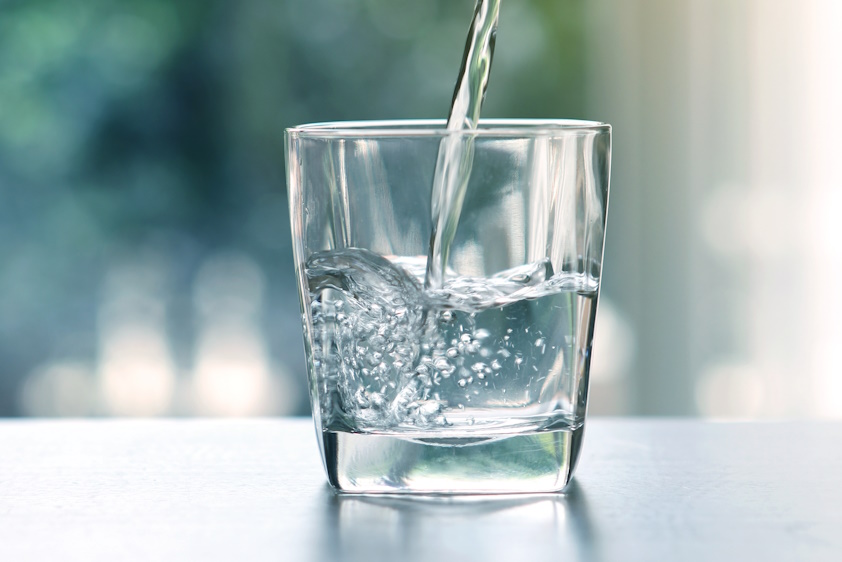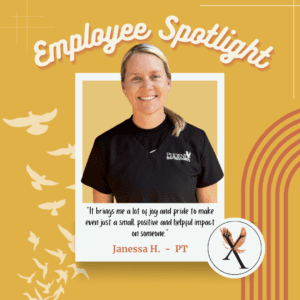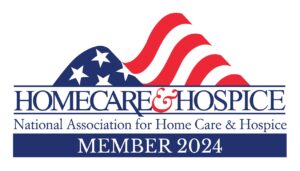Learn Hydration Basics, Including How Home Health Care Services Can Help Meet Your Loved One’s Needs
Most people have been hearing about the benefits of hydration since they were children, and it’s easy to fall short on our daily intake of water. For older adults, however, taking care of this need is of the utmost importance.
Why? Ensuring proper daily water intake is essential for the body’s key functions. Major organs, joints, body temperature, blood pressure, and more rely on regular hydration. Most medical organizations, including the U.S. National Academies of Science, Engineering, and Medicine consider 8 glasses of water per day to be the gold standard for fluid intake.
When the body doesn’t get enough fluids, dehydration causes a number of symptoms. The effects of dehydration range from minor annoyances like headaches, to more serious complications like heat stroke, heart trouble, and kidney problems.
Older adults are particularly at risk of complications due to dehydration and may even have conditions or take medications that increase their risk.
Ensuring older adults hydrate regularly sounds simple, but it is not always easy to implement. Some older adults are not able to get enough water, as hunger and thirst decrease with age. It’s much easier for older adults to forget this basic need.
Therefore, it is important to encourage older adults to stay hydrated, to keep them as healthy as possible and avoid complications from dehydration. To support you in this process, here are four tips from home health care experts that older adults, family members, and caregivers can implement right away.
4 Tips to Support Hydration, Including Home Health Care Services
The following tips range from simple actions that older adults can perform on their own, to more involved care. While some older adults may need a gentle reminder from family, others may need assistance from home health care or private duty care. If you are a family looking for private caregivers or other services, be sure to read tips three and four below.
1. Stock the Kitchen with Plenty of Hydrating Foods and Liquids
The first recommendation to keep older adults hydrated is to ensure that hydrating drinks and foods are readily available at home. Some beverages like alcohol, coffee, and soda tend to dehydrate the body. So, it’s important to focus on the right drinks, especially water.
For those who don’t like plain water, a simple slice of lemon can make water intake more appealing, as can other fruit and vegetable infused waters, which are sugar-free, uncarbonated, and contain natural flavors. You can also try fat-free milk, as it doesn’t contain milk sugars.
Serving soup or broth are other simple ways to improve hydration. Add a flavorful, broth-heavy soup for lunch, snack, or dinnertime to increase hydration. Some solid foods have high water content and are healthy snack options. Stock the kitchen with fruits like strawberries, watermelon, and tomatoes, or veggies like cucumbers, celery, and iceberg lettuce.
2. Create a Hydration Routine
Setting a schedule for water intake can make a big difference in ensuring older adults are getting a healthy amount of fluids. Serving a hydrating fluid with each meal and snack can account for the majority of your loved one’s daily servings of water.
Once a routine has been established, it’s far easier to remain consistent. Older adults will experience the benefits of proper hydration, which can even aid in healing and pain relief for some conditions.
3. Home Health Care Can Help
In some cases, older adults require a more consistent presence in their lives to ensure their day-to-day care. Home health care services ensure that basic needs are met, alongside visits from nurses, aides, and physical therapists to provide relevant medical care. Prescribed by a doctor after a recent diagnosis, medication change, recent fall, or worsening prior diagnosis, home health care is a powerful service for those who qualify.
After a physician orders these services, an older adult is then assigned a nurse as well as additional caregivers, depending on their specific needs. A home health aide can also be assigned, and part of their role can include daily reminders related to personal care, including proper nutrition and hydration.
Available as a Medicare-covered service, home health care from a highly skilled team can go a long way in ensuring older adults’ medical and personal needs are addressed effectively, especially while they recover at home.
You can request a home health care agency by name when your doctor orders this service. Look for a team that provides a full continuum of care, including comprehensive disease management and hospice. Agencies with robust experience and a full suite of healthcare services are likely the most knowledgeable partners as you navigate this phase of life.
4. How Private Duty Caregivers Provide for Older Adults
Families with a loved one who does not qualify for home health care services are eligible for a private duty caregiver. Skilled nursing, transportation, housekeeping, and meal preparation are all part of the comprehensive support that families looking for private caregivers can expect. This care can include ensuring hydration.
A private caregiver can provide reminders about consuming hydrating drinks and foods, serve healthy meals and snacks, and even grocery shop to ensure that older adults get the nutrition they need. Again, look into an agency that offers a wide range of healthcare services including a private duty caregiver, and get in touch to schedule a conversation about your particular needs.
Assist Your Elder Family Member with Home Health Care and Private Duty Care
Although some families prefer to do their own check-ins on a parent, grandparent, or relative, it isn’t always possible to tend to their needs as consistently as necessary.
To ensure that the older adult in your life is taken care of – including hydration, proper meals, medical services, and other necessities – home health care or a private duty caregiver may be the answer you have been looking for. A vital solution is within reach today.






